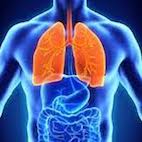 A new study investigates the association between alcohol consumption and lung cancer in Spanish never smokers. The results, published in the scientific journal European Journal of Public Health, do not show a clear association. More research is needed to further investigate the association and the underlying mechanism.
A new study investigates the association between alcohol consumption and lung cancer in Spanish never smokers. The results, published in the scientific journal European Journal of Public Health, do not show a clear association. More research is needed to further investigate the association and the underlying mechanism.
What is already known? Smoking is the primary cause of lung cancer. Of all lung cancer cases, 10-25% occurs in never smokers. The association between alcohol consumption and lung cancer is still unknown. The World Cancer Research Fund (WCRF) indicates that there is limited evidence with a suggestive increased risk1.
What does this study add? The study is a new pooled analysis looking at the association between alcohol consumption and lung cancer, exclusively in never-smokers from a Spanish population.
No clear association
The current study2conducted a pooled analysis using data from six studies including a total of 1,300 participants. The results show that there is no clear association between overall alcohol consumption and lung cancer. Looking at different beverages, the results suggest that spirit consumption might increase the risk of lung cancer in never-smokers. The researchers indicate that the consumption of specific alcoholic beverages might be related to other dietary behaviours and social economic status. No clear dose-response association was found for wine, beer or spirits.
Limited evidence
Previously we wrote about another study using pooled analysis to investigate the association between alcohol consumption and lung cancer in never-smokers. This international study with almost 12,000 participants found that light-to-moderate alcohol consumption (0-20 g/day) was associated with a decreased risk of lung cancer3. Taken all available evidence into account, the WCRF concludes that the evidence is limited, though suggestive for an increased risk of lung cancer1. More research is therefore needed to further investigate this association and the underlying mechanism.
Mechanism
The current study describes some possible underlying mechanism of the association between alcohol consumption and lung cancer. In general, alcohol can interact with DNA and cause changes in methylation and gene control, which can lead to cancer development. More specifically, alcohol has a solubilizing role on other carcinogens penetration through the upper aero digestive mucosa. The differences in associations for alcoholic beverages could be explained by specific compounds present in beer, wine and spirits.
Lung cancer
Lung cancer is the third most common cancer worldwide. With 1.8 million new cases in 2012, lung cancer contributes to 13% of all new cancer cases. Next to that, lung cancer is the most common cause of death by cancer, responsible for about one in five cancer deaths. Smoking is the most important cause of lung cancer. It is estimated that over 90% of cases among men and over 80% among women worldwide are attributable to tobacco use. Passive smoking is also a cause of lung cancer1,2.
Strengths
- Pooled analysis only in never-smokers.
- Adjustment for residential radon which is the most important risk factor for lung cancer in never-smoker.
Limitations
- Relatively small number of studies and participants included.
- Limited data on differences between men and women.
- Only Spanish data included.
References
1. World Cancer Research Fund – Lung cancer; How diet, nutrition and physical activity affect lung cancer risk. https://www.wcrf.org/dietandcancer/lung-cancer
2. García Lavandeira, J. A., Ruano-Ravina, A., Kelsey, K. T., et al. Alcohol consumption and lung cancer risk in never smokers: A pooled analysis of case-control studies. European Journal of Public Health, vol. 28, nr. 3, pp. 521 – 527, 2018.
3. Fehringer, G., Brenner, D. R., et al. (2017) Alcohol and lung cancer risk among never smokers: A pooled analysis from the international lung cancer consortium and the SYNERGY study. International Journal of Cancer, vol. 140, nr. 9, pp. 1976-1984.
